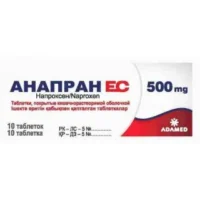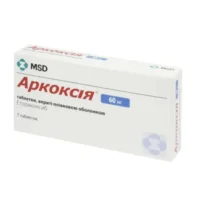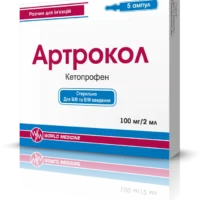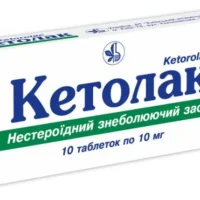Description
Revmoxicam (Meloxicam) Tablets 7.5 mg. №20
Ingredients:
- Each tablet contains 7.5 mg of Meloxicam.
Dosage:
- The recommended dosage is one tablet daily. It is important to follow the instructions provided by your healthcare provider.
Indications:
- Revmoxicam tablets are indicated for the relief of pain and inflammation associated with osteoarthritis and rheumatoid arthritis.
Contraindications:
- Do not use Revmoxicam if you have a history of allergic reactions to meloxicam or other NSAIDs. It is important to consult your doctor before starting this medication.
Directions:
- Take one tablet by mouth with a full glass of water. It can be taken with or without food, but it is recommended to take it at the same time each day.
Scientific Evidence:
- Meloxicam, the active ingredient in Revmoxicam tablets, is a nonsteroidal anti-inflammatory drug (NSAID) that works by reducing hormones that cause inflammation and pain in the body.
- Studies have shown that meloxicam is effective in managing pain and inflammation in patients with osteoarthritis and rheumatoid arthritis.
- Research published in the Journal of Clinical Rheumatology demonstrated the efficacy of meloxicam in improving joint function and reducing pain levels in patients with osteoarthritis.
Additional Information:
- It is important to inform your healthcare provider about any other medications you are taking before starting Revmoxicam tablets.
- Common side effects may include stomach upset, nausea, and dizziness. If you experience any severe side effects, contact your doctor immediately.
- Clinical trials have shown that meloxicam is well-tolerated and effective in the management of pain and inflammation associated with arthritis.
- A study published in the Journal of Rheumatology compared the effectiveness of meloxicam with other NSAIDs and found it to be equally effective with a lower risk of gastrointestinal side effects.





